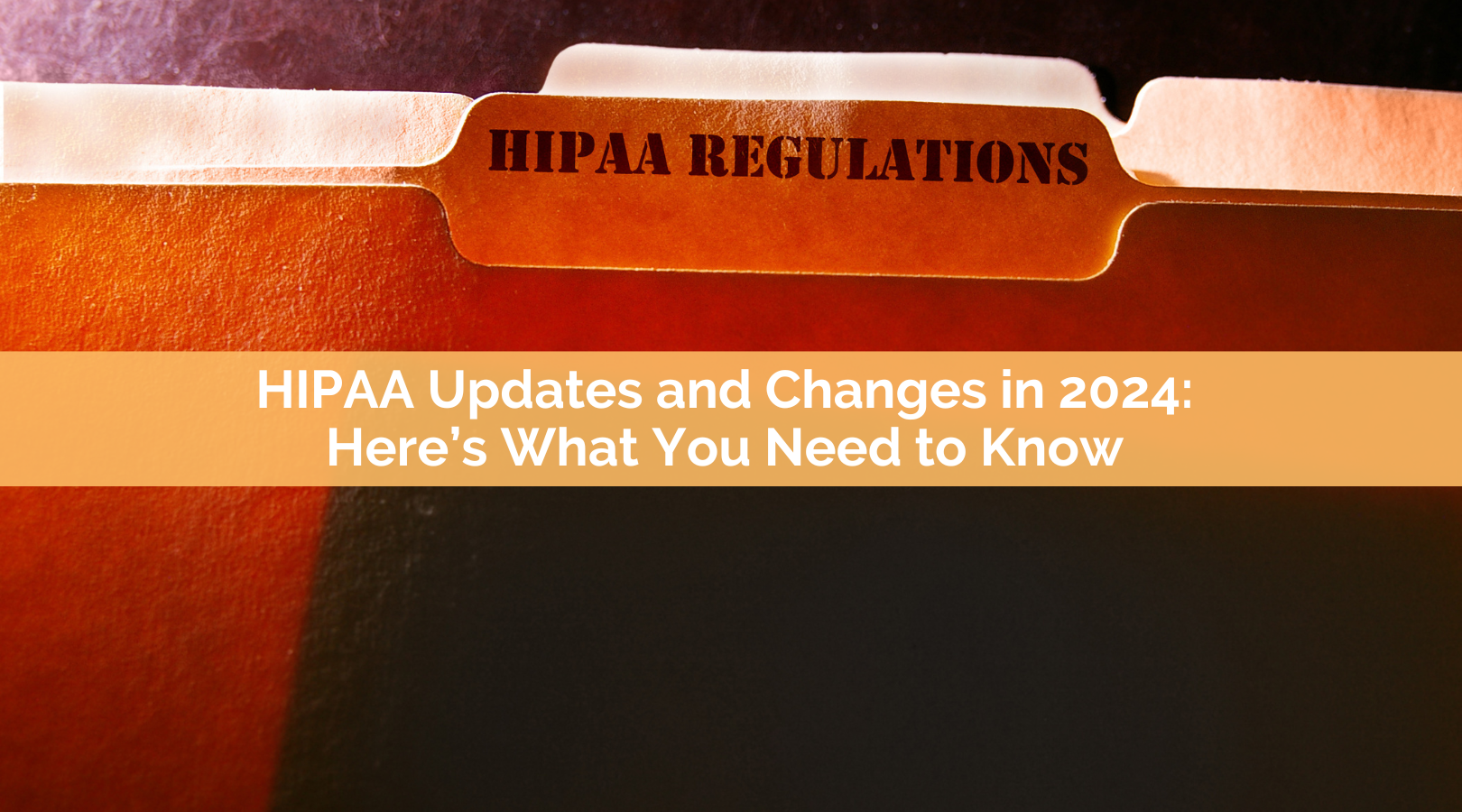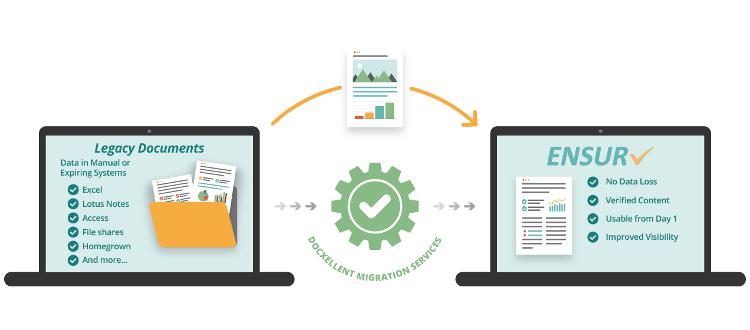
The Health Insurance Portability and Accountability Act (HIPAA), enacted in 1996, serves as the bedrock for safeguarding the privacy and security of patient information in the healthcare sector. It establishes standards that healthcare providers and organizations must adhere to when handling sensitive medical records and personal health information.
Staying informed about HIPAA updates is not just a legal requirement but a critical component of maintaining integrity and trust within the health care ecosystem. With the healthcare landscape continually evolving, understanding, and adapting to new regulations are imperative for delivering quality care while safeguarding patient confidentiality.
Navigating the Evolving Landscape of HIPAA: Unveiling the Key Changes and Updates in 2024
As the healthcare industry continues to evolve and adapt to the ever-changing technological landscape, so does the regulatory environment governing the protection of sensitive patient health information (PHI). HIPAA stands as a cornerstone of healthcare privacy, safeguarding individuals' medical records and ensuring their right to control the disclosure of their personal health data.
In 2024, HIPAA will undergo significant revisions, reflecting the growing complexities in healthcare data management and the need for enhanced protection of patient information in an increasingly interconnected digital world. This blog delves into the intricacies of these updates, exploring the implications for healthcare providers, organizations, and patients alike.
Expanded Privacy Protections
The 2024 amendments to HIPAA introduce a series of measures aimed at expanding patient privacy protections and addressing emerging threats to PHI. These provisions underscore the importance of patient data security and confidentiality, requiring healthcare entities to implement robust safeguards to protect sensitive information against both internal and external threats.
Strengthened Cybersecurity Requirements
The increasing reliance on electronic health records (EHRs) and the proliferation of healthcare data have made the industry a prime target for cyberattacks. In response to this growing threat, the 2024 HIPAA updates introduced stricter cybersecurity requirements, mandating enhanced risk assessments, incident response plans, and data encryption practices.
Enhanced Patient Rights and Access
At the heart of the 2024 HIPAA revisions lies a renewed focus on empowering patients to control their health data. Patients gain enhanced rights to access their PHI, including the ability to obtain copies of their records in electronic form and to request corrections or amendments to inaccurate information. Healthcare providers must implement clear and accessible procedures for patients to exercise these rights effectively.
Updates on Breach Notification Requirements
The 2024 HIPAA amendments clarify and strengthen breach notification requirements, ensuring that patients are promptly informed of any unauthorized disclosures of their PHI. Healthcare entities must have a comprehensive breach notification plan in place, including procedures for identifying, investigating, and reporting breaches to the U.S. Department of Health and Human Services (HHS).
Compliance Challenges and Solutions: Navigating the Regulatory Landscape Effectively
The 2024 HIPAA updates present a range of compliance challenges for healthcare providers and organizations. Ensuring adherence to the expanded privacy provisions, strengthened cybersecurity requirements, and enhanced patient rights requires a multifaceted approach that encompasses policy updates, training programs, and technological advancements.
To effectively navigate the evolving regulatory landscape, healthcare entities should adopt a comprehensive compliance strategy that includes:
- Conducting regular risk assessments to identify and mitigate potential threats to PHI Implementing robust data security measures, including encryption, access controls, and incident response plans
- Providing ongoing training to employees on HIPAA policies and procedures
- Establishing clear and accessible procedures for patients to exercise their privacy rights
- Maintaining a comprehensive breach notification plan and promptly reporting any unauthorized disclosures of PHI
Navigating the Regulatory Landscape: A Guide to Resources for Healthcare Organizations
The ever-evolving nature of HIPAA regulations and the complexities of healthcare data management can pose significant challenges for organizations seeking to maintain compliance and safeguard patient information. Fortunately, a wealth of resources is available to aid healthcare entities in staying informed, addressing compliance issues, and implementing effective data protection practices.
1. U.S. Department of Health and Human Services (HHS)
The HHS serves as the primary source of information and guidance on HIPAA regulations. Its website provides comprehensive resources, including:
- HIPAA for Professionals: A comprehensive guide to HIPAA regulations, including summaries of the Privacy, Security, and Breach Notification Rules
- HIPAA FAQs: A searchable database of frequently asked questions and answers on various HIPAA topics
- HIPAA Training Materials: A collection of training resources, including webinars, presentations, and modules
- HIPAA Enforcement Data: Information on enforcement actions taken by the HHS Office for Civil Rights (OCR)
2. HealthIT.gov
HealthIT.gov is a federal website dedicated to promoting the adoption and meaningful use of health information technology (HIT). It provides various resources related to HIPAA compliance, including:
- HIPAA Security Rule Implementation Guide: A comprehensive guide to implementing the HIPAA Security Rule
- HIPAA Security Risk Assessment Toolkit: A tool for conducting HIPAA security risk assessments HIPAA Privacy Rule Implementation Guide: A comprehensive guide to implementing the HIPAA Privacy Rule
- HIPAA Privacy Rule Compliance Checklist: A checklist for assessing compliance with the HIPAA Privacy Rule
3. Industry Associations and Publications
Several industry associations and publications offer valuable resources on HIPAA compliance. These include:
- American Hospital Association (AHA): The AHA provides resources on HIPAA compliance, including webinars, publications, and tools
- American Medical Association (AMA): The AMA offers a variety of HIPAA resources, including articles, fact sheets, and legal guidance
- Healthcare Information and Management Systems Society (HIMSS): HIMSS provides resources on HIPAA compliance, including webinars, publications, and tools
- Journal of AHIMA: The Journal of AHIMA is a publication of the American Health Information Management Association (AHIMA) that provides articles and insights on HIPAA compliance issues
4. HIPAA Compliance Consulting Services
Numerous consulting firms specialize in providing HIPAA compliance services to healthcare organizations. These firms can provide assistance with:
- HIPAA compliance audits: Identifying and addressing potential compliance gaps
- HIPAA policy development: Developing and implementing HIPAA-compliant policies and procedures
- HIPAA training: Providing HIPAA training to employees
- HIPAA incident response: Responding to HIPAA breaches and other compliance incidents
5. Online Resources and Tools
Several online resources and tools can aid healthcare organizations in staying informed and addressing HIPAA compliance issues. These include:
- HIPAA Compass: A free online tool from the HHS that provides guidance on HIPAA compliance
- HIPAA Privacy Rule Quick Reference: A concise guide to the HIPAA Privacy Rule from the HHS
- HIPAA Security Rule Quick Reference: A concise guide to the HIPAA Security Rule from the HHS
- OCR Audit Tool: A tool from the OCR that helps organizations assess their readiness for an OCR audit
By utilizing these resources and seeking guidance from qualified professionals, healthcare organizations can effectively navigate the evolving regulatory landscape, maintain compliance with HIPAA regulations, and safeguard patient data.
The Future of Healthcare
As the healthcare industry evolves, so does the regulatory environment governing patient health information (PHI) protection. The 2024 HIPAA updates mark a significant step forward in safeguarding patient privacy and ensuring secure PHI handling in an increasingly interconnected digital world. Expanded privacy protections, strengthened cybersecurity requirements, and enhanced patient rights and access provisions underscore the importance of patient data security and confidentiality. Healthcare entities must implement robust safeguards to protect sensitive information.
The healthcare industry must continue adapting to the evolving regulatory landscape and remain committed to protecting patient privacy and security. Working together, we can ensure patient data remains secure and individuals have control over their personal health information.
For expert assistance in navigating HIPAA compliance, contact DocXellent today. Our team is ready to help you meet HIPAA's evolving requirements and secure your patient data with confidence.-1.png?width=6000&height=900&name=Blog%20Author%20Headers%20(3)-1.png)
Amy Sinyei Rodrigues is DocXellent's Chief Customer Officer. In this role, Amy works with our customers to make sure they are getting the most they can out of our Document Management Software, ENSUR. After graduating with a BS in Industrial Engineering and an MBA in General Management, Amy worked with several enterprise software and solution services providers in the electronic discovery industry before bringing her years of expertise and valuable education to DocXellent 6 years ago. Learn more about Amy and the work she does for DocXellent here.




























